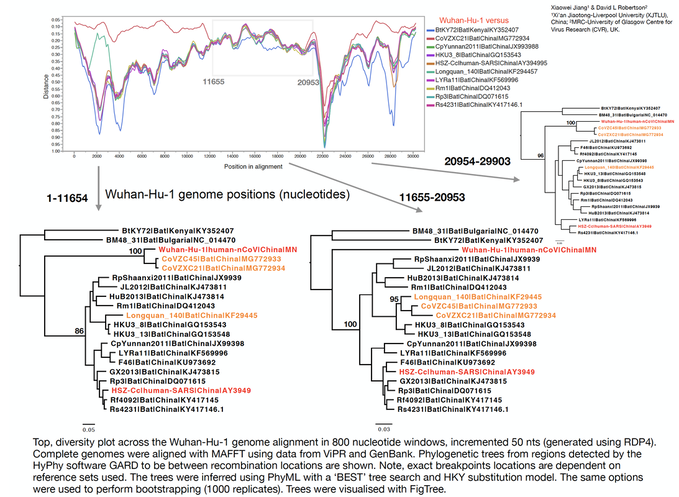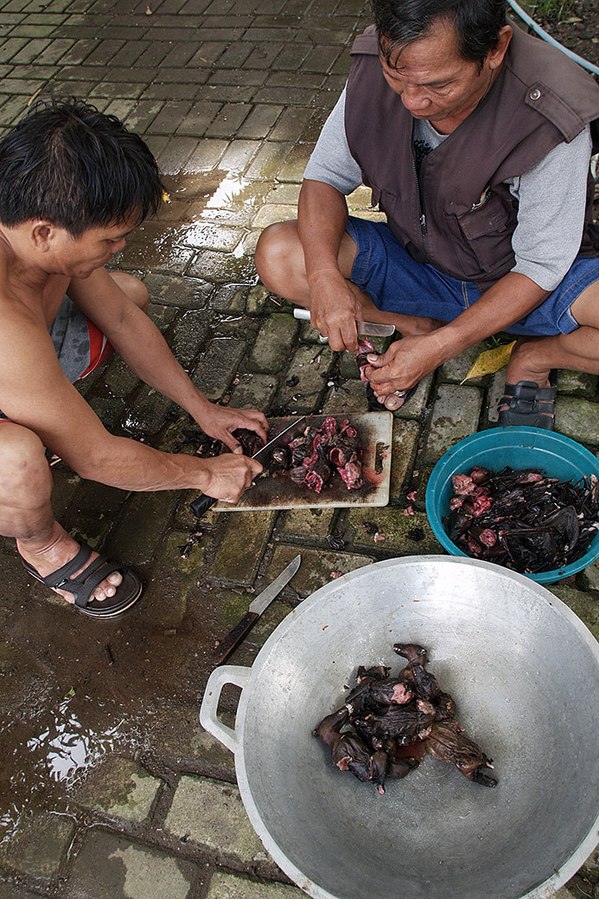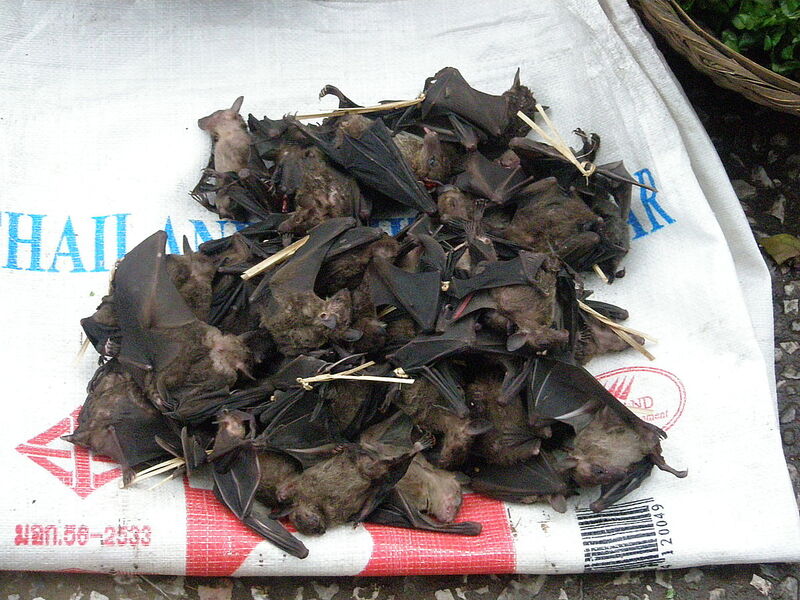|
**TL;DR: The main takeaway from all this, is that people need to stop eating bushmeat that is prone to zoontonic disease transfer.**  Xiaowei, J., Robertson, D. L. diversity plot of Wuhan-Hu-1 genome Xiaowei, J., Robertson, D. L. diversity plot of Wuhan-Hu-1 genome Over the past week, there has been reports of a viral outbreak of a new strain of coronavirus from Wuhan, China. Reports suddenly switched focus from the presence of the viral outbreak, to the cause after NCBI released a full genome of the virus, which was first reported to be snakes. However, even the results of this study suggested that the virus was recombination of bats and a another virus, before reporting that snakes were likely capable of transfer to humans: "Results obtained from our analyses suggest that the 2019‐nCoV appears to be a recombinant virus between the bat coronavirus and an origin‐unknown coronavirus." - Wei, et al. 2020 However, the study itself is chalk full of incomplete sampling, which have no other reptiles being represented for comparison, and more importantly, no evidence that the Wuhan coronavirus infects snakes, making this article highly assumptive. After the article linking snakes and humans was released, two more articles came out, describing the viral link from bats to humans being the more likely culprit. One study, examines the genetic origins of the virus and concludes that the Betacoronavirus genera is more closely related to the coronavirus in bats and thus is the most likely to cross transfer to humans. The author of the study further comments: "Just to be clear Spike is at positions 21717 to 25693 in our diversity plot and recombination analysis so to the right of the recombination breakpoint in the bat viruses CoVZC45 and CoVZXC21. In a Spike phylogeny nCoV clusters with these bat viruses. There is no evidence of snakes being involved as incorrectly reported..." - David L. Robertson Another study examined the genome of the virus through extraction from an ill patient. The virus was shown to be a 96% match to the coronavirus found in bats. All in all, the biggest takaway from all of this, is that although 'exotic' dishes may appeal to some who are feeling adventurous, or even those who see it as a long-standing tradition, wild bushmeat can be dangerous and even moreso with species prone to zoontonic disease transfer. The market which is thought to be 'ground zero' in Wuhan was reported to sell dishes that contained animal meat from bats, snakes, ostriches, and marmot (reports say koalas, but there is no evidence of this). At the risk of sounding ethnocentric, I believe markets like this have no place in the modern world, and without proper vetting (understanding where the food came from and how it could be contaminated) outbreaks like this will continue to occur. References 1. Novel coronavirus complete genome from the Wuhan outbreak now available in GenBank https://ncbiinsights.ncbi.nlm.nih.gov/2020/01/13/novel-coronavirus/?fbclid=IwAR16yc6O2NMsPLrAWdeUuNP28tgdVp-WgUSt3-RC3DdHt53rVbUaVCycvcM 2. Ji, W., Wang, W., Zhao, X., Zai, J. and Li, X. (2020), Homologous recombination within the spike glycoprotein of the newly identified coronavirus may boost cross‐species transmission from snake to human. J Med Virol. Accepted Author Manuscript. doi:10.1002/jmv.25682 https://onlinelibrary.wiley.com/action/showCitFormats?doi=10.1002%2Fjmv.25682 3. Robertson, Dl (2020). nCoV’s relationship to bat coronaviruses & recombination signals (no snakes) http://virological.org/t/ncovs-relationship-to-bat-coronaviruses-recombination-signals-no-snakes/331 4. Shi, Z.-L., Zhou, P., Yang, X.-L., Wang, X.-G., Hu, B., Zhang, L., Zhang, W., Si, H.-R., Zhu, Y., Li, B., Huang, C.-L., Chen, H.-D., Chen, J., Luo, Y., Guo, H., Jiang, R.-D., Liu, M.-Q., Chen, Y., Shen, X.-R., Wang, X., Zheng, X.-S., Zhao, K., Chen, Q.-J., Deng, F., Liu, L.-L., Yan, B., Zhan, F.-X., Wang, Y.-Y., Xiao, G. (2020). Discovery of a novel coronavirus associated with the recent pneumonia outbreak in humans and its potential bat origin https://www.biorxiv.org/content/10.1101/2020.01.22.914952v1?rss=1 Author: Russell J Gray
1 Comment
|
AuthorRussell J. Gray Archives
April 2021
Categories |



 RSS Feed
RSS Feed
